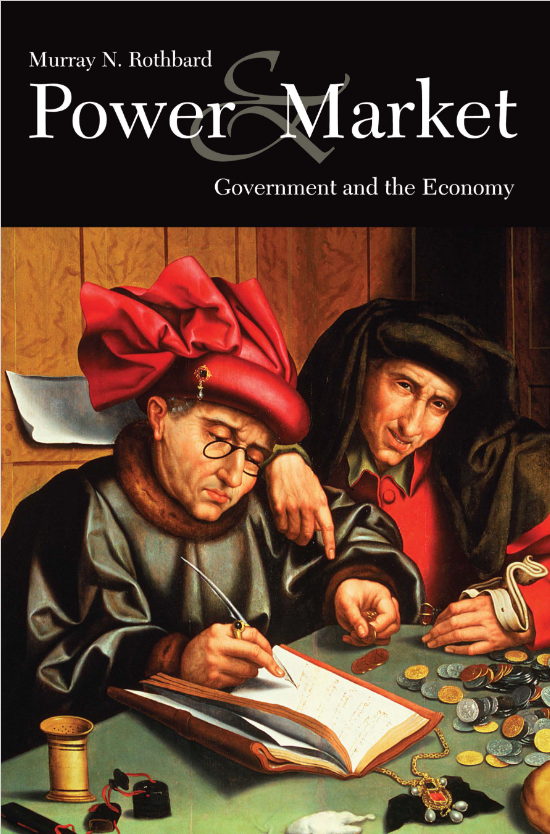Newly released
This book is new and will be uploaded as soon as it becomes available to us and if we secure the necessary publishing rights.

Power and Market: Government and the Economy Book PDF
(0)
Author:
Murray RothbardNumber Of Reads:
69
Language:
English
Category:
Social sciencesSection:
Pages:
348
Quality:
excellent
Views:
983
Quate
Review
Save
Share
Book Description
What can government do to enhance social and economic well being? Nothing, says Murray N. Rothbard. Power and Market contains the proof. It will inoculate the reader against the even the slightest temptation to invoke the state as a solution to any social or economic problem. It is ultimate manual for completely de-mystifying the myth of the state.
This beautiful new edition is the first to truly do it justice.
The Rothbardian claim is perhaps the most radical made in the history of political economy. But how can it be convincing? What must an author do to back up this claim?
Here is what Rothbard did. He systematically classified every form of intervention into three types: autistic, binary, and triangular. Within each category, he discusses their ill effects, and does so with precision and insight. Free market scholars have been using and expanding on his insights for years. But in this book we have the source.
He is like an expert house inspector examining the edifice of the state. Brick by brick, nail by nail, he shows that it is fundamentally unsound. The seeming edifice is really a house of cards.
This book is the ideal answer to the person who says: "I favor free markets but…." and then proceeds to advocate some intervention they believe to be helpful. Rothbard shows that it is not helpful, no matter what it is. And he provides the logic for understanding how all forms of government aggression make society worse off.
Murray Rothbard
Murray Newton Rothbard was an influential American historian, natural law theorist and economist of the Austrian School who helped define modern libertarianism. Rothbard took the Austrian School's emphasis on spontaneous order and condemnation of central planning to an individualist anarchist conclusion, which he termed "anarcho-capitalism".
Book Currently Unavailable
This book is currently unavailable for publication. We obtained it under a Creative Commons license, but the author or publisher has not granted permission to publish it.
Rate Now
5 Stars
4 Stars
3 Stars
2 Stars
1 Stars
Power and Market: Government and the Economy Quotes
Top Rated
Latest
Quate
Be the first to leave a quote and earn 10 points
instead of 3
Comments
Be the first to leave a comment and earn 5 points
instead of 3